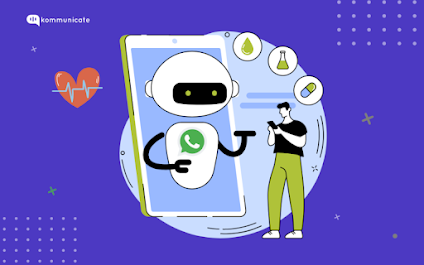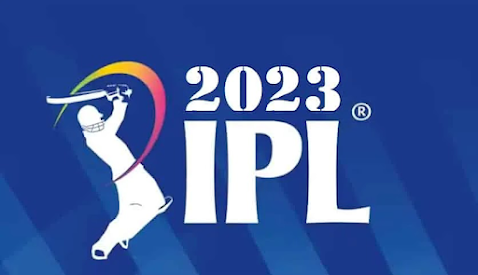The Top 9 Advantages of WhatsApp Chatbots in the Healthcare Industry
There is no other business in the world where time is more important in preserving lives than the healthcare industry. Individuals' health and well-being can be improved by providing timely healthcare. In today's world, when pandemics and rapid outbreaks of flu are common, the healthcare business requires a technology boost to compete.
Having stated that, the sector is already utilizing a variety of technology applications. However, the newest generation of instant messaging apps, such as WhatsApp, can go a long way toward supporting the business and its stakeholders. This may be accomplished by providing high-quality, time-sensitive services.
How WhatsApp chatbots increase communication in the healthcare profession.
- Making appointments easier
- Handles Scale of Frequently Asked Questions (FAQs)
- Communication of patient information in real-time
- a single location for storing patient data
- Answers medical insurance questions
- Payments for in-chat are integrated.
- Cross-sell or upsell additional healthcare solutions using WhatsApp chatbots. Assists in delivering health exam reminders to users.
- distributing medical test results
1. Facilitated appointment scheduling
Patients had to contact the doctor's clinic/hospital to schedule an appointment before mobile applications and mHealth became prevalent. Any adjustments to these appointments were difficult to arrange and caused problems for both parties. In most situations, the patient or a bystander was also required to attend the hospital to make the necessary modifications. This was very difficult in most circumstances, resulting in missed appointments.
When the doctor's schedule changed, the uninformed patient would show up for the appointment only to find out it had to be rescheduled. In a nutshell, life was difficult.
With mobile applications taking over and instant messaging apps like WhatsApp becoming the one-stop shop for all communication, such challenges are no longer an issue. They facilitate appointment scheduling and guarantee that the communication loop is constantly kept open on both sides.
This prevents confusion and subsequent occurrences such as failing to show up for rescheduled appointments or being unable to modify preset appointments.
2. Responds to Frequently Asked Questions (FAQs) on a scale
Let's be honest. Even when shopping online, we have hundreds of questions racing through our heads before making a purchase choice. The patient will have several queries regarding a healthcare decision. Some of them may be fundamental in nature, such as hospital wheelchair accessibility, insurance services, ambulance services, payment methods, and so on.
Most patients ask these questions again over time. These commonly asked questions do not require a doctor's or a healthcare provider's time and attention. You may create a WhatsApp chatbot to respond to similar questions in real-time.
3. Communication concerning patient information in real-time
Doctors often work in shifts at most hospitals. This implies that a doctor will be present in the hospital for a particular working hour, after which another doctor will take their position. The patients allocated to the previous doctor will, however, continue to be watched by hospital staff.
Message applications can be used to send questions or communicate about the patient's health state. Whatsapp chatbots make it simple to exchange soft copies of scan reports, photographs of wounds, and other information in real-time. Furthermore, because these chatbots are encrypted, data transfer is safe and resistant to cyber security risks.
This feature means that doctors may continue to monitor patients even when they are not physically there. They can assign chores to their assistant healthcare providers till they need to return to their shift. Furthermore, in the event of an emergency, the attendants on duty can promptly arrange for real-time connection with the doctor via video calling and phone calls. It raises the bar for corporate cooperation to a whole new level.
4. A single location for storing patient data
Even before computers and cell phones, healthcare data was a contentious matter. It is one of the most sensitive pieces of information about a person, and in the wrong hands, it may lead to disaster. Apart from the patient, the major guardians of such data are doctors and healthcare professionals.
However, discarding such data after therapy is a bad idea since it breaks the thread of the patient's health journey through time. A safe and secure method of storing healthcare data is urgently needed. WhatsApp chatbots can assist in this situation.
In addition to real-time communication, they can ensure that data sharing is secure and that information is available on cloud servers. Users should be able to obtain this information anytime they need it. This achieves a delicate balance between 24/7 accessibility and high-level data security.
5. Handles medical insurance issues
For every patient, obtaining health insurance is a difficult task. Because of the many plans and coverage given by various health insurance carriers, a patient may not comprehend the terminology right away. When the need to claim insurance occurs, clients frequently have to hurry to discover the agent's contact information or wait interminably before they can reach a phone support agent.
Whatsapp chatbots can help in this case. They can function as a real-time support system, answering patients' quick questions regarding health insurance coverage information. They can also serve as a conduit of communication between the insurance company and the insured.
6. Payments for in-chat integration
WhatsApp has lately begun accepting in-chat payments. Users may now effortlessly perform financial transactions with others in their contacts thanks to this capability. While this functionality may appear to be a standard payment integration, it offers more benefits in the healthcare industry than meets the eye.
For example, the patient may have a single unified channel for initiating and completing financial transactions. Insurance payments and claims are also consolidated in one location to avoid overlap and communication breakdowns. It simplifies the procedure of obtaining and paying for healthcare.
7. Use chatbots to cross-sell or upsell additional healthcare products.
Over the last decade, the healthcare industry has evolved. New services and solutions that claim to maintain and preserve patients' health have been presented. Periodic health checks, tailored food programs, exercise regimens tailored to health concerns, and so on have all become normal.
All of these options do not follow the traditional route of a doctor's prescription. Instead, they are promoted to users via in-app communications. The launch of Facebook Bots in 2016 caused a massive change in this industry. WhatsApp bots now carry on the heritage. WhatsApp chatbots may do so much for a healthcare service provider, from conveying offers to attracting consumers and preserving all of their communication in one place.
8. Aids in the recall of patients' health checkups
Healthcare is a never-ending process. Except for a few conditions, most patients must return to the doctor for follow-up appointments to verify that their recovery is on track. These follow-up appointments might be scheduled every two to three days, even every week in some situations. In any case, it is the patient's responsibility to ensure that they attend the follow-up appointment on time.
This is a significant task for older people who get forgetful as they age. They can prevent such situations thanks to medical chatbots. The app may notify patients when their checkup is approaching. This ensures that the patient may prepare ahead of time to show themselves.
Everything from logistical planning to having all records available for inspection may be better organized without a last-minute rush. In fact, in certain areas of the world, patients have gadgets that tell them when it is time to take their prescriptions, conduct their daily exercise program, and schedule doctor evaluations. WhatsApp chatbots operate inside the same ecosystem.
9. Disseminating medical test results
Hospitals in underdeveloped nations may not always have the resources to do scans and medical testing. It is often an outsourced service in which the patient must attend an approved medical scanning or testing centre to complete the tests suggested by the doctor.
Previously, the results were printed out and given to the patient. There was a delay between providing the patient with the findings and making an appointment for the patient to discuss it with the doctor. This slowed down the therapy procedure even further.
However, these medical test centres may directly communicate the results with the doctor or the hospital's WhatsApp group that keeps patient data. This prompt dissemination of results aids in the therapy process. Furthermore, because the findings are available in digital format, it is easier for the doctor to zoom into scan reports and obtain granular-level information on the patient's health. This was not true for paper-printed records.
Putting everything together
WhatsApp chatbots are relatively new to the market. They have made significant advances in a variety of areas, healthcare being one of them. Healthcare providers, medical professionals, and patients can have more control over their time and the services they deliver or receive thanks to WhatsApp chatbots' real-time communication and collaboration capabilities.
WhatsApp chatbots establish a single communication channel via which you can easily exchange conversations, data, and even money. It lowers the complexity and difficulty that previous systems had, which were bringing the healthcare sector dangerously near to collapse. Chatbots reduce the need for specialized corporate software that most laypeople do not grasp.
It equalizes access to everyday healthcare for all people. Anyone who can use a smartphone may simply utilize a WhatsApp chatbot to manage their healthcare. Furthermore, there is no need to pay for the installation of extra software or apps. WhatsApp remains a free app for everyone.
It comes as no surprise that WhatsApp chatbots have significantly cut in-person booking times and waiting periods. They've made it simpler for physicians and patients alike to get on the same page thanks to real-time communication gaps.







Comments
Post a Comment